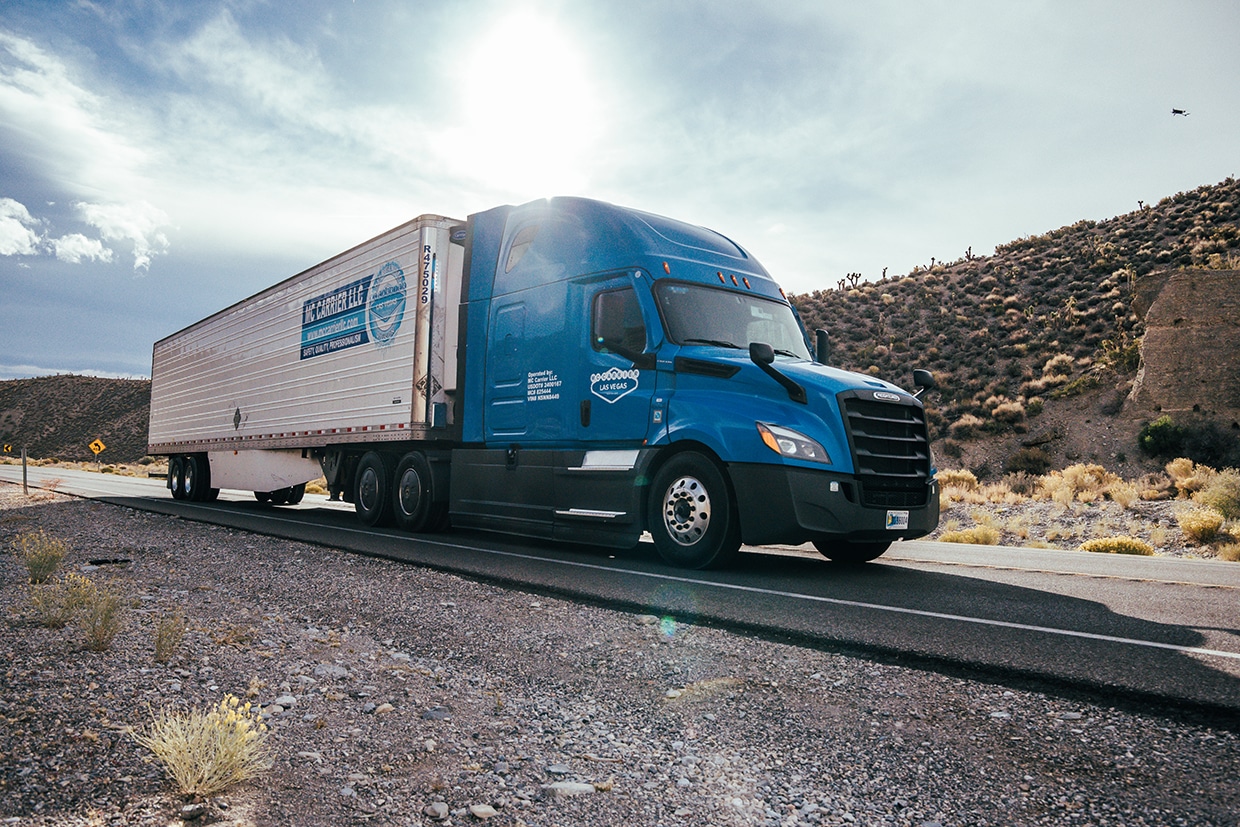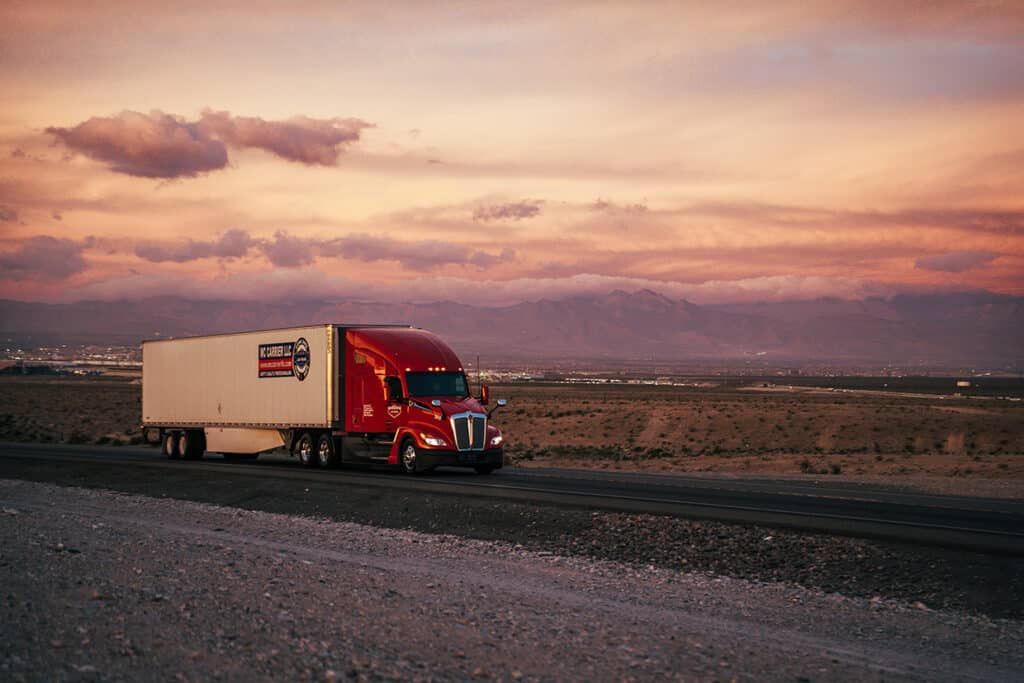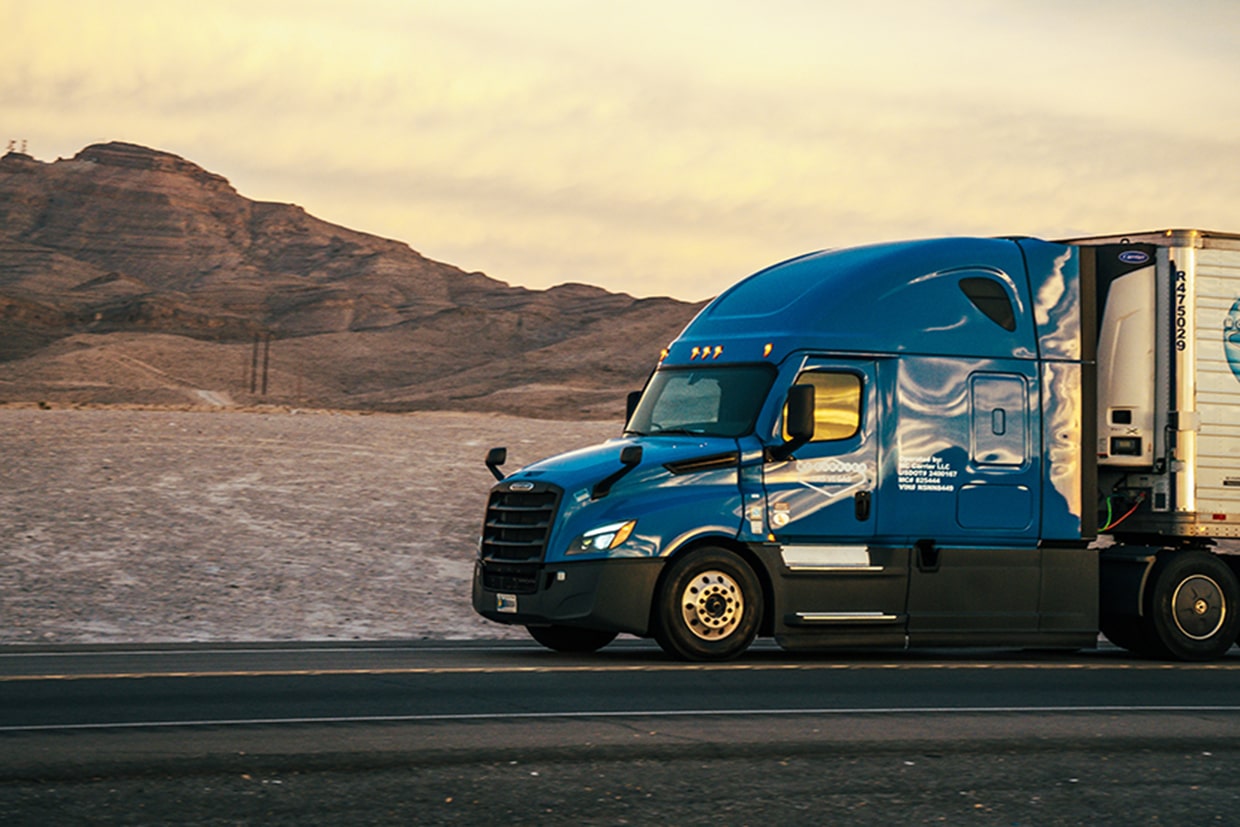When it comes to temperature-controlled freight shipping, many business owners aren’t exactly sure where to start. You may assume that temperature-controlled shipping is simply a trailer that refrigerates goods. But there is more to it than that. Shipping temperature-sensitive cargo can require a wide temperature range, from frozen to room temperature depending on the requirements of the shipment.
A temperature-controlled truck, also called a reefer, provides a temperature controlled environment that can keep sensitive freight safe from outside temperatures. Shipping something as simple as chocolate bars could end in a melted mess if not shipped in a climate-controlled environment. Refrigerated shipping is the number one way of keeping the supply chain going, allowing us to ship food, plants, flowers, pharmaceuticals, and other sensitive goods all across the U.S.
Temperature-controlled shipping service- What is it exactly?
Temperature-controlled shipping service refers to a method of transporting goods that requires specific external temperature conditions to be maintained throughout the entire shipping process. This service is commonly used for shipping perishable items, such as food, medicines, and other sensitive products that require strict temperature controls to maintain their quality and effectiveness.
Here are some important things to know about temperature-controlled shipping services:
- Sensitive goods require specialized equipment and vehicles, such as refrigerated trucks, to ensure that the temperature is maintained.
- The temperature range can vary depending on the type of product in transit and may range from below freezing to room temperature or even higher.
- Reefer transport of goods is regulated by industry and government standards to ensure the safety and quality of the shipped products. Temperature guidelines are clearly outlined by the USDA- https://www.fsis.usda.gov/food-safety/safe-food-handling-and-preparation/food-safety-basics/mail-order-food-safety.
- Proper packaging and labeling is essential to ensure that the products are handled and transported correctly, and to prevent any contamination or damage.
- The use of temperature-maintained shipping services has increased in recent years, as more industries have recognized the importance of maintaining temperature control (not just for frozen shipments) throughout the entire shipping process to ensure product quality and safety.

What is the Difference Between Cold Chain Packing and Reefer Trailers?
Refrigerated freight shipping has a long and fascinating history that dates back to the early 1800s. Before the advent of refrigeration technology, temperature-sensitive goods were transported using ice and snow. However, this method was limited in its effectiveness and often led to spoilage and wasted food.
In the 1800s, refrigeration technology began to emerge as a viable solution for transporting frozen goods over long distances. The first refrigerated railroad car was developed in 1851, and by the 1920s, refrigerated trucks and ships had become common modes of transportation for temperature-sensitive goods. Dry ice and gel packs became common tools in helping insulate temperature-sensitive freight, which can help chill cargo but not consistently.
Today, items being shipped that require chilling have become an essential part of the global supply chain. From food and pharmaceuticals to chemicals and electronics, many industries rely on refrigerated transportation to keep cargo safe and fresh.
One important aspect of refrigerated shipping is cold chain packing. Cold chain packing refers to the process of packing goods needing to be kept cold, in a way that helps maintain their freshness and quality during transportation for extended periods of time. This involves using specialized packaging materials and techniques to maintain a consistent temperature and prevent exposure to light, moisture, and other factors that can lead to spoilage.
In addition to cold chain packing, reefer trailers are another common tool used in refrigerated shipping. A reefer trailer is a refrigerated trailer that is attached to a truck or tractor and used to transport perishable goods. These trailers are typically equipped with advanced cooling technology, such as a refrigeration unit or a diesel-powered generator, to maintain a consistent temperature, keeping cargo refrigerated and at an ideal temperature throughout the shipping process.
While both cold chain logistics and reefer trailers are important components of cold freight shipping, they serve different purposes. Cold chain packing focuses on the packaging and handling of temperature-sensitive goods, while reefer trailers are used for transporting those goods over long distances and maintaining proper temperature in a reefer container. By combining these two approaches, shippers can ensure that their perishable goods arrive at their destination in the best possible condition.
If you’re in need of refrigerated freight shipping for your business, contact a reputable provider to learn more about how they can help you ship perishable goods safely and efficiently and provide you with multiple shipping options to meet your unique needs.
When do you need Temperature-controlled Freight Shipping?
Here are some situations where temperature-controlled shipping may be needed:
- Perishable goods: Any food item that can spoil or deteriorate over time, including fresh produce, meat, dairy products, and frozen foods require a consistent interior environment.
- Pharmaceuticals: Many medications and vaccines are temperature sensitive and require specific temperatures to maintain their effectiveness and shelf life.
- Chemicals: Some chemicals are sensitive to temperature changes and need to be kept at a certain temperature during shipping to avoid degradation or other potential hazards.
- Electronics: Some electronic components, such as computer chips and circuit boards, can be damaged by extreme temperatures during transport. It may be surprising, but these electronics require temperature-controlled shipping.
- Fine art: High-value and delicate pieces of art may require temperature-maintained shipping to prevent damage or deterioration during transport. MC Carrier LLC has expert knowledge of goods that need controlled LTL shipping, and we will always make suggestions to help you select the correct shipping service.
- Wine: Wine is a sensitive product that can spoil if exposed to high temperatures or temperature fluctuations. Wine needs to be kept at the desired temperature, and a reefer trailer can assist in providing the right temperature throughout the shipping journey.
- Live animals: Some animals, such as tropical fish, reptiles, and certain species of insects, require a certain temperature to survive during transport. When you ship with a reputable carrier, you can rest assured that we will keep your products at the desired temperature, regardless of the type of shipment you are making.
- Florals: Flowers and plants require specific temperatures to maintain their freshness and quality during transport. If they are not kept at a precise temperature, the entire payload could be spoiled, costing the shipper thousands of dollars.
Overall, any product that is sensitive to temperature changes and requires specific shipping solutions to maintain its quality or effectiveness may require temperature-controlled shipping. Not only that, but you want to find a shipper who has temperature-controlled docks so your freight remains at a certain temperature from the moment the truck doors close, until it arrives at the terminal, to the moment it arrives at your customer’s door. When we unload your shipment, the temperature is maintained. It’s essential to work with a reputable and experienced shipping provider, like MC Carrier LLC. to ensure that your sensitive shipments are transported safely and effectively.

Climate Control Shipping is Not Just for Perishable Goods
When you think of temperature controlled shipments, your first thought likely goes to shipping foods like meat, produce, and frozen products. You’d be surprised to learn that there are a multitude of other types of items that require certain temperature requirements from the moment they leave the shipping facility. The temperature inside the trailer must be kept at an acceptable temperature throughout its journey. Whether that is a few hours or a few days.
In addition to perishable goods, there are many other items that require climate-controlled shipping services. This can include pharmaceuticals, medical supplies, electronics, and even fine art. These items can be sensitive to extreme temperatures, which can cause damage or even complete loss. It is absolutely crucial to use a reliable temperature-controlled shipping service provider to ensure that these goods are transported safely and effectively. With proper climate control, these items can arrive at their destination in the same condition as they were when they were shipped.
Precise Temperatures are Required for Different Refrigerated Freight
The specific temperature range required for shipping depends on the type of product being transported and can vary widely. Some common temperature variants for temperature-controlled shipping include:
- Ambient temperature: This refers to the temperature of the surrounding environment, also known as room temperature. It is typically used for products that are not sensitive to temperature changes, such as dry goods or some pharmaceuticals.
- Refrigerated temperature: This refers to a temperature range of 36°F to 46°F, which is commonly used for perishable food items, vaccines, and some pharmaceuticals.
- Frozen temperature: This refers to a temperature range of -4°F to 14°F, which is used for frozen food items, some vaccines, and certain types of biological samples.
- Deep frozen temperature: This refers to a temperature range of -112°F to -76°F, which is used for some vaccines, biological samples, and certain types of pharmaceuticals.
- Controlled room temperature: This refers to a temperature range of 59°F to 77°F, which is used for some pharmaceuticals that are sensitive to temperature changes but do not require refrigeration.
- Warm temperature: This refers to a temperature range of 68°F to 77°F, which is used for some medical devices and pharmaceuticals that are sensitive to cold temperatures.
These temperature variants are just examples, and the specific temperature range required for shipping will depend on the product being transported and the regulations governing its transport. To learn more about regulations on items that require temperature controlled shipping, contact your shipper as they can inform you of proper shipping methods.

Top Temperature Controlled Freight Shipping Service with MC Carrier LLC.
MC Carrier LLC is your top choice for temperature-controlled freight shipping services. We have years of experience in handling temperature-sensitive cargo, and we ensure that our FTL (full-truckload) and packaging materials meet industry standards for temperature control. Our team of professionals is highly trained and committed to providing excellent service to all of our clients.
If you need to transport temperature-sensitive goods, don’t hesitate to contact us for a free quote. We are available 24/7 to answer your questions and help you with sensitive items that need to be shipped. Trust us to get your goods to their destination safely from the moment it leaves your facility to the minute it arrives at its final destination. Contact MC Carrier LLC today and experience the best refrigeration shipping service in the industry! Contact us today to get a FREE estimate on shipping costs for your temperature-sensitive or perishable freight!

















